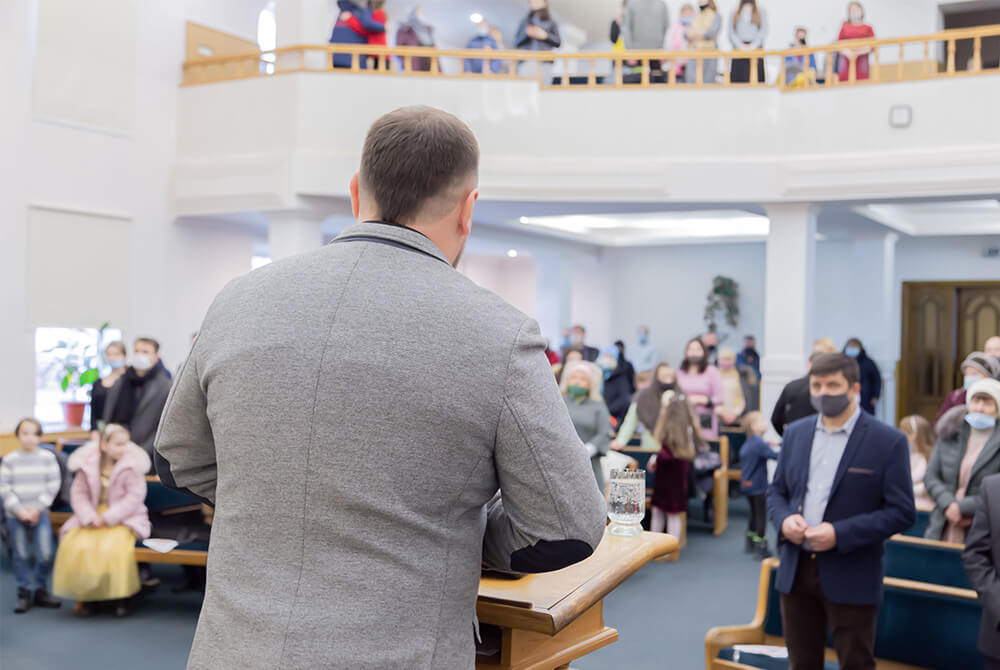
The Importance of the Church Welcome Speech
A church welcome speech is extremely important in leaving first impressions. First-time visitors need to be gradually warmed up to the routine of a congregation. Coming on too strongly might result in poor reception. The same thing applies to a lack of hospitality and attention.
Thus, church leaders need to provide a middle ground, where first-time attendees are acknowledged while not coming on too strongly. Never create a scenario whereby the first-timer feels overwhelmed by the session – it should be a natural process that keeps it informative for regular church-goers, while comfortable for new attendees.
Never Underestimate Welcome Speeches
Church welcome speeches should never be interpreted as a slot filler between choir and band performances. It is an essential juncture in the church program that bridges first-timers to the rest of the program. Additionally, it provides a preview of what is to be expected during service. This is a good opportunity for speakers to speak in a warm and friendly manner, addressing the congregation while easing them into the flow of the session.
First-time visitors goers may be Christians from disparate denominations or non-Christians. This means that the speech should not sound presumptive (assuming that all visitors are aware of a Christian church routine) Ensure the delivery of your welcome speech is kept as neutral as possible and let the rest of the service play out to gradually introduce the church to the first-timer. Your opener will determine if the first-timer stays for the entirety of the event or walks out for an indefinite toilet break.
Steer Clear from Jargon
It is inevitable for sermons to contain information that seems abstract or inaccessible to first-timers. But this should not happen during the church welcome speech. Using terms like “rock”, “shepherd”, or “propitiation”, may be confusing or intimidating for new visitors. Instead, stick to simple and non-ambiguous language to put everyone at ease to start off the service on a light-hearted note.
Nadia Bolz Webber, an author, and pastor stresses this, “Let’s make sure that in seminary classrooms and at church conferences and in congregational life when we use a term or a phrase, that it points to an actual thing, or person or event and is not just a string of words that sound like something meaningful but in fact, lack real meaning.”
Extend a Warm but Non-personalized Welcome
Speakers may address visitors by making a general statement such as, “let’s give a warm welcome to the brothers and sisters who are new to our church.” This makes first-timers feel a greater sense of hospitality and acceptance from churchgoers and the ministry. As such, they might be more likely to return to relive the atmosphere.
As group pastor Marty Duren from Green Hill Church shares, “When I was a lead pastor, this was when I liked to express deep appreciation for any guests in attendance. After all, they had—quite literally—a world of other options on that particular morning. I never wanted to take them for granted or miss an opportunity to make them feel appreciated by limiting my welcome to a recap of the bulletin announcements.”
However, this does not mean that speakers should place first-timers in potentially embarrassing situations. For example, asking new attendees to stand while the hall erupts in applause is overwhelming and is unlikely to create a good experience.
Prepare Vicariously
The best church welcome speeches are prepared by putting yourself in the perspective of first-time visitors. There are some key points to consider. What goes on in the mind of the new churchgoer? The speech should clear some of those lingering doubts and help them feel closer to God and the community.
This can be achieved by firstly showing appreciation for their attendance, thanking them for taking the time to be a part of the event. These appreciations can be followed up with an invitation to learn more about the church, but keep this brief. This could be an invitation to view the website or the visitor center. The delivery of the address and recommendation should sound natural, seamless, and welcoming.
Be Presentable and Genuine
First impressions are always vital in any form of communication. Speakers should be presentable and dressed appropriately at all times. How you look affects the way people hear your message. When delivering the church welcome speech, always look at people in the eye as much as possible. It is also important to smile to provide trust and assurance. It is important to make every attendee feel like they are children of God and not mere strangers in the crowd.
Avoid Information Overload
You should not bog down church welcome speeches with too much information. Leave that to the newsletter, pre-service videos, or bulletin boards. Attendees have ample opportunities to find out more about a particular church event after the service – so there is no rush to get it all out at the start of service. It is ineffective to repeat a message announced elsewhere, especially if is a non-urgent piece of news. Too much information might also overrun your speech, which interferes with the rest of the program.
Keep to the Time Slot
Speakers should stick to an average of 3-5 minutes when presenting the church welcome speech. This means that the content should be informative, meaningful, and concise. An extended speech could cause inconveniences for the rest of the presenters scheduled for the church session.
More garrulous speakers might consider using a script to keep the welcome speech within the allocated time. Here is one effective example from GrowChurch.net:
“Hi! I’m [YOUR NAME] and a very welcome to you. It’s so good to see so many smiling faces this morning! If this is your first time at [CHURCH NAME] I want to extend a special warm welcome to you, it’s great to have you with us. Please take a moment and fill out the connect card that can be found [LOCATION]. That’ll really help us get to know you a little bit better and know how we can serve or pray for you. This week we start a brand 4-week series called [SERMON SERIES NAME] where we’re going to be talking about [TOPIC]. I know that God is going to speak to us, amen? Before I go, let me just remind you that [USEFUL INFO HERE]. That being said, let’s get ready to [NEXT STEP HERE].OK, let’s pray together. [PRAYER]”
However, this should be a last resort since speeches are most effective when they are spontaneous and sincere. Attendees are likely to sense the nuances.
Appointing a Better Communicator
There is no rule stating that only a ministry leader can conduct a church welcome speech. Some leaders may excel at organizing, fundraising, and preaching, but may not be the best presenter in an opening address. If that is the case, leaders should consider appointing another member of the ministry with better public speaking skills to deliver the church welcome speech. It is all about leaving a major first impression and the appointed speaker can make a huge contribution to the church with an effective opener.
Conclude with a Short Prayer
Some speakers may overlook this in the spur of the moment. Ultimately, visitors are at the church to feel closer to God. The church welcome speech should not be solely about the community and the line-up of events. A short prayer at the end of the address will serve as a reminder of the whole purpose of the session, and why people have gathered in unity away from their busy schedules. New attendees will have an instant reminder of their part in the sacred gathering, which transcends any performance or bulletin update.
Welcoming your Members
Church welcome speeches require strategic planning and management as much as any other segment in a service. The segment might be short, but it is crucial to start your crowd in the right direction from the opening address. This will set the tone for your entire service and affect the overall mood and reaction of the attendees. The welcome speech prepares everyone for the main purpose of the gathering, the sermon – and the more effective a speech is, the more receptive attendees will be toward the good word.


